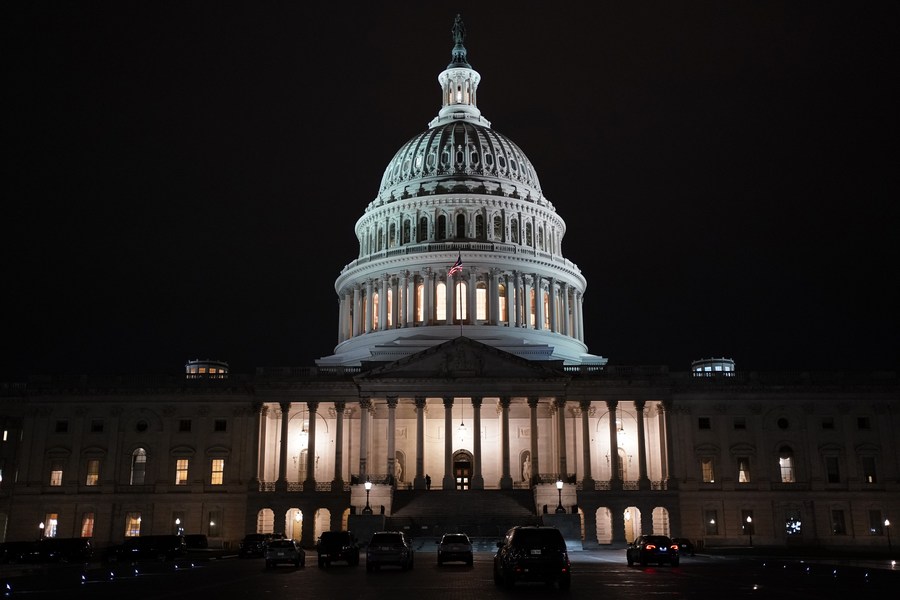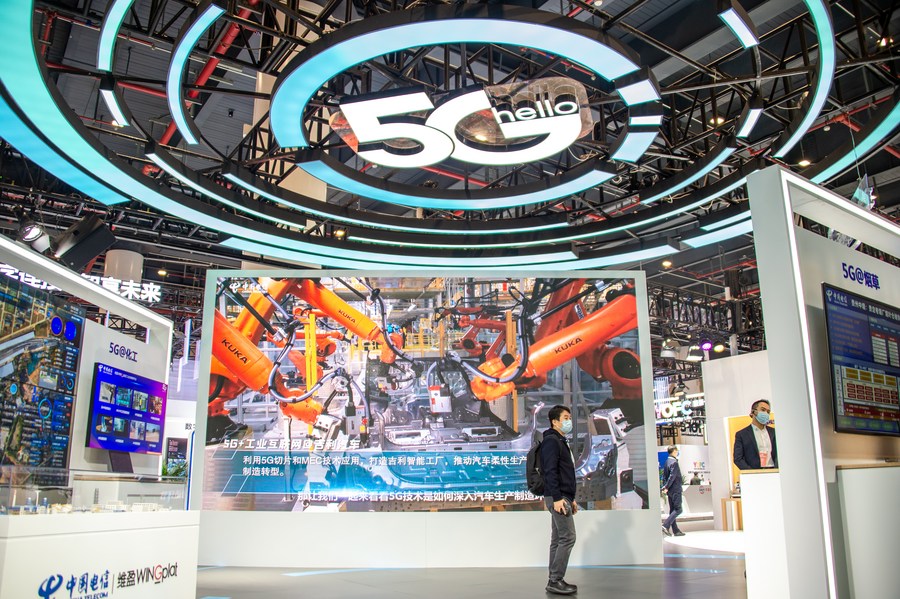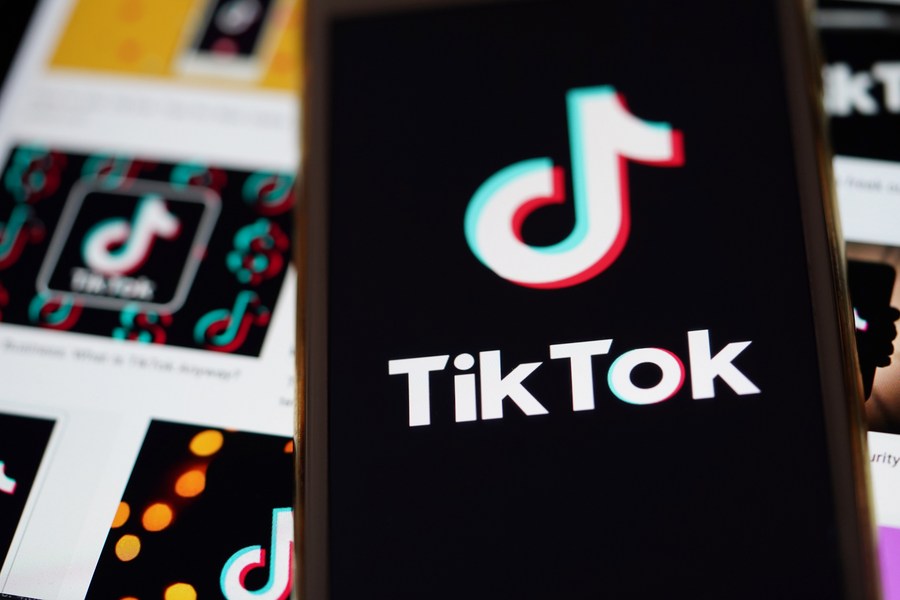Commentary: Washington, reckless seeker of digital hegemony

Photo taken on Nov. 19, 2021 shows the U.S. Capitol building in Washington, D.C., the United States. (Photo by Ting Shen/Xinhua)
Blinded by their entrenched Cold War mentality, those U.S. politicians have also completely overlooked the critical role global industry cooperation plays in driving innovation of communications technologies and standard setting.
BEIJING, Dec. 14 (Xinhua) -- When U.S. politicians, think tanks and media outlets contrive to impose the label of "digital hegemony" on other countries, they are acting as if leakings by the U.S. National Security Agency (NSA) whistle-blower Edward Snowden in 2013 had never happened.
In fact, the United States is the one that best deserves the moniker of "hacking empire," and its relentless suppression of competitors under the guise of national security is the greatest impediment to global connectivity.
Eight years after Snowden blew the whistle on the U.S. government's eavesdropping of colossal scale both at home and abroad, the Danish media revealed in May that the NSA was using the services of the Danish Defense Intelligence Agency to monitor leaders of European countries, including former German Chancellor Angela Merkel.
With targets that include not only competitors but also allies, the United States is a true pursuer of large-scale, indiscriminate wiretapping and secret theft. Even its allies find this "unacceptable."

Photo taken on Nov. 20, 2021 shows the venue of China 5G+ Industrial Internet Conference in Wuhan, central China's Hubei Province. (Photo by Wu Zhizun/Xinhua)
The U.S. digital hegemony is also manifested in abusing its global supremacy to arbitrarily crack down on sci-tech companies in other countries under the guise of national security. Such hegemonic moves constitute a serious violation of market economy principles and international economic and trade rules, and have gravely disrupted global industrial and supply chains.
To eliminate what it sees as a threat to its technological hegemony, Washington has used nearly every available means, including blacklisting tech companies and imposing chip trading sanctions, as well as impeding cooperation and exchanges between China and some other countries. Washington's brazen actions have sparked concern worldwide.
Washington's heavy-handed crackdown of tech companies like TikTok has laid bare the recklessness and hypocrisy of America's blatant modern-day piracy against outperforming foreign enterprises.
TikTok, a video-focused social networking service popular with young Americans, has long been falsely accused by Washington of spying on its users. However, according to The New York Times, even the Central Intelligence Agency has concluded that there is no evidence that China has intercepted TikTok data or used the app to intrude on users' mobile phones.

The logo of TikTok is seen on the screen of a smartphone in Arlington, Virginia, the United States, Aug. 30, 2020.(Xinhua/Liu Jie)
Blinded by their entrenched Cold War mentality, those U.S. politicians have also completely overlooked the critical role global industry cooperation plays in driving innovation of communications technologies and standard setting. That is why Washington has accused Chinese firms of posing a "national security threat" even though it has no credible evidence, and pressured other countries to bar those Chinese companies from participating in their 5G network construction.
With major tech powerhouses all over the world developing blueprints for 6G, the next-generation wireless technology, Washington continues to follow the old way of forming a small clique of allies in a desperate attempt to exclude and suppress China.
Today, the task of building a better world for all is highly linked to a healthy and sustainable development of the cyberspace. Both tasks demand robust global exchanges and cooperation.
However, Washington's reckless pursuit of digital domination runs counter to the trend of development and cooperation. The world community should stand firmly together against Washington's tech bullying so that digital harmony, instead of digital hegemony, will prevail at last.
Photos
Related Stories
- CIA’s Operation Mockingbird a precursor of US manipulation of world public opinion
- Democracy not "pretext for imposing hegemony": Chinese spokesperson
- China will engage in common efforts to oppose hegemony, power politics: Xi
- The backlash of Washington's hegemonic bullying
- Containing China not antidote to America's hegemonic anxiety
Copyright © 2021 People's Daily Online. All Rights Reserved.










